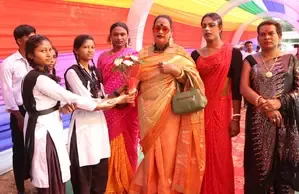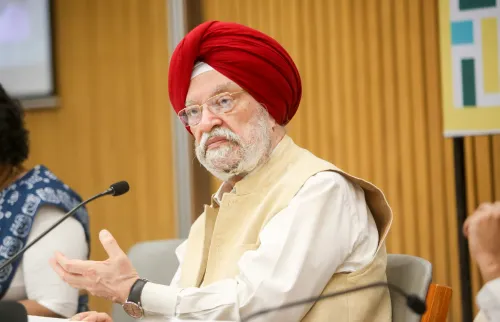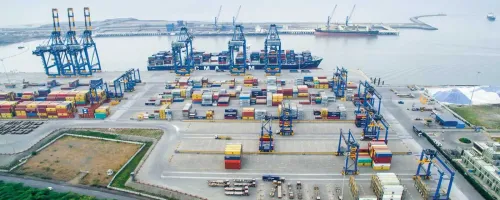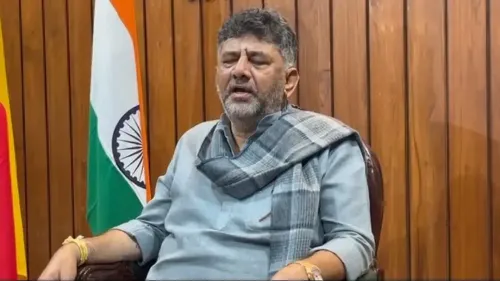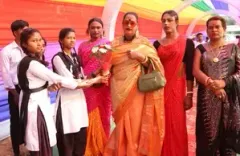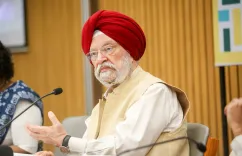What Did EAM Jaishankar Discuss with Counterparts from Tajikistan and Kazakhstan?
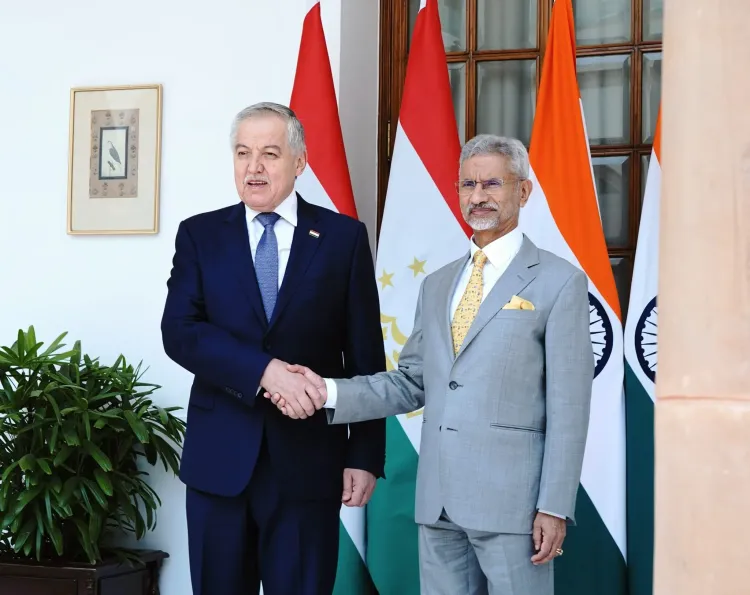
Synopsis
Key Takeaways
- EAM S. Jaishankar emphasizes India's zero-tolerance policy towards terrorism.
- Strengthening cooperation with Tajikistan and Kazakhstan is a priority.
- The India-Central Asia Dialogue serves as a crucial platform for enhancing ties.
- Discussions focus on trade, investment, and regional security.
- Recent events highlight the need for a unified approach against terrorism.
New Delhi, June 5 (NationPress) External Affairs Minister (EAM) S. Jaishankar engaged in bilateral talks with his counterparts from Tajikistan and Kazakhstan on Thursday, reiterating India's firm stance of zero tolerance towards terrorism.
Foreign Ministers from Kazakhstan, Turkmenistan, Uzbekistan, Kyrgyzstan, and Tajikistan have gathered in New Delhi for the two-day 4th India-Central Asia Dialogue, as India strives to enhance its anti-terror and de-radicalization initiatives throughout the region.
In his meeting with Tajikistan's Foreign Minister Sirojiddin Muhriddin, EAM Jaishankar emphasized the imperative to combat terrorism and fortify the relationship between their nations.
"A productive discussion with FM Sirojiddin Muhriddin of Tajikistan. We concurred on the necessity of effectively countering terrorism within our region. We exchanged ideas on strengthening our cooperation, particularly concerning trade, investment, and connectivity," he noted in a post on X.
The EAM also met with Kazakhstan's Deputy Prime Minister and Foreign Minister Murat Nurtleu, expressing appreciation for his commitment to a zero tolerance approach to terrorism.
The two sides examined critical elements of the strategic partnership between India and Kazakhstan and discussed ways to improve connectivity with the Central Asian region.
"I was pleased to meet DPM and FM Murat Nurtleu of Kazakhstan this morning. I valued his reaffirmation of zero tolerance for terrorism. We discussed various aspects of our Strategic Partnership, concentrating on political, trade, investment, and energy cooperation. Additionally, we addressed the expansion of connectivity with the Central Asian region," the EAM wrote on X.
EAM Jaishankar will host the five foreign ministers from Central Asia -- including Bakhtiyor Saidov (Uzbekistan), Rashid Meredov (Turkmenistan), Zheenbek Kulubaev (Kyrgyzstan), Sirojiddin Muhriddin (Tajikistan), and Murat Nurtleu (Kazakhstan) -- amid ongoing incidents of cross-border terrorism, notably highlighted by the tragic April 22 Pahalgam terror attack that claimed the lives of 26 innocent civilians.
The visiting Foreign Ministers will take part in the India-Central Asia Business Council meeting on Thursday and the India-Central Asia Dialogue on Friday, concluding their visit to India with a meeting with Prime Minister Narendra Modi later that evening.
The India-Central Asia Dialogue, initiated in January 2019 in Samarkand, serves as a crucial platform for reinforcing ties between India and Central Asia.
The second meeting was conducted virtually in October 2020, focusing on regional security, counter-terrorism, and infrastructure development. The third meeting took place in New Delhi in December 2021, emphasizing connectivity to deepen the relationship between India and Central Asia.
During the fourth iteration of the dialogue on June 6, the ministers will deliberate on further enhancing relations between India and the Central Asian countries, with a particular emphasis on trade, connectivity, technology, and developmental cooperation.
They will also exchange views on regional security challenges and other mutual regional and global concerns.
"India and Central Asia, being each other's 'Extended Neighbourhood', share close and amicable diplomatic relations rooted in centuries of cultural and personal exchanges. The inaugural India-Central Summit, held virtually in January 2022, along with the India-Central Asia Dialogue mechanism at the Foreign Ministers' level, has significantly advanced this relationship," stated a release from the MEA.

